Sign up for The Wild
We’ll help you find the best places to hike, bike and run, as well as the perfect silent spots for meditation and yoga.
You may occasionally receive promotional content from the Los Angeles Times.
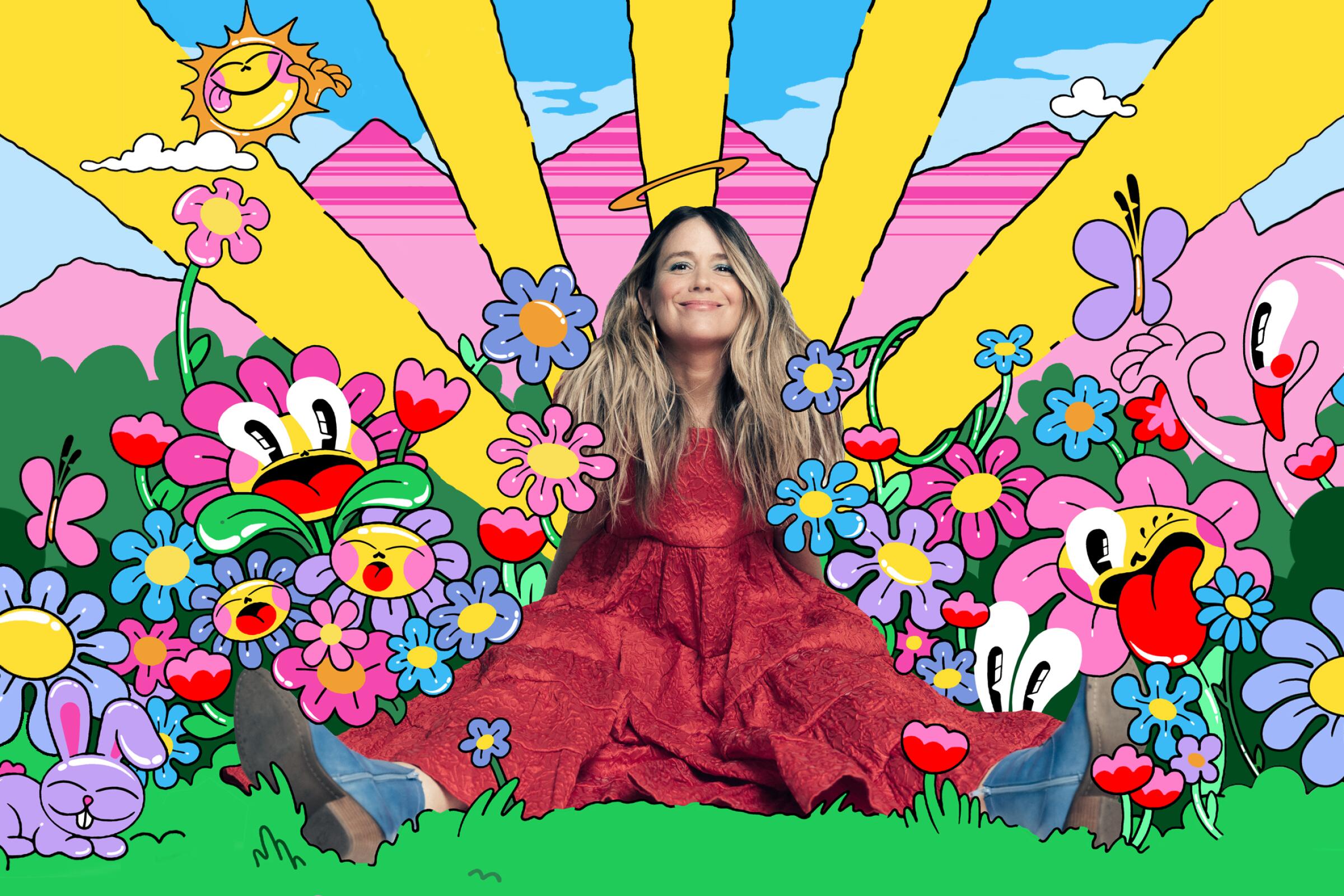
“Can I get a picture with you?” a woman asks Jen Gotch, tentatively approaching the founder and chief creative officer of the L.A. lifestyle and apparel brand Ban.do. “I love you so much, you’re, like, why I’m on Instagram, and I love your dance videos.”
Gotch, in a feathery yellow Ban.do dress and blue eye shadow, beams and leans in for a hug. (“This is what happens now,” Gotch explains later about fans who seek her out in person.)
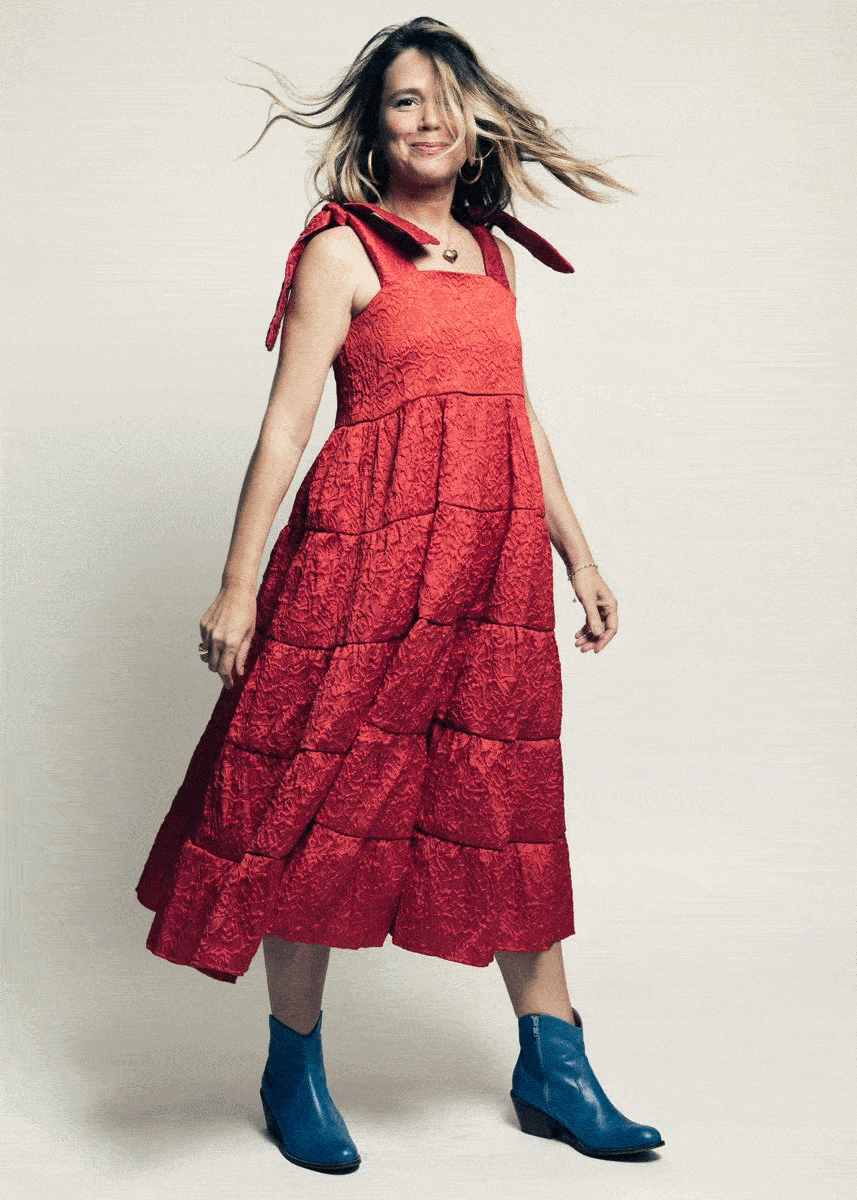
With shoppers and admirers nearby, the 48-year-old entrepreneur and author is standing in the middle of a February warehouse sale on Canon Drive in Beverly Hills, surrounded by Ban.do’s upbeat notebooks, T-shirts with winking sayings, heart-shaped pool floats and tumblers with innumerable ways of expressing the need for coffee.
Gotch has always been the public face of Ban.do, the company she co-founded in 2008. In recent years, her profile has also grown as a champion of mental health advocacy — with a following all her own.
In Gotch’s Instagram Stories, the camera is almost always turned on her, whether she is chronicling an anxiety attack, stumbling up a rock or wearing a hat she thinks you should buy. She’s skilled at creating content such as “Trash Dancing,” in which Gotch shimmies, head bangs and darts in and out of the frame in a great outfit. Or “Travel Anxiety,” in which she details her emotions during a flight day and the steps she takes to remain panic-free. Online, Gotch emits a childlike giddiness that often devolves into delirious laughter.
“When I first met her, I thought that she was constantly a little bit drunk,” says Joy Cho, founder of design brand Oh Joy!, who has known Gotch for more than a decade. “But that was just kind of her. The idea that she’s a little bit off-kilter. A little bit quirky.”
Back at the warehouse sale, near a bucket of watermelon-inspired beach towels, Lee Newton, 34, of Los Angeles considers her appreciation of Gotch. “There’s a certain age when women stop talking about things, but she talks about anxiety a lot,” Newton says. “My anxiety came on in my older age. So it was refreshing to feel like I had a community and companionship with someone I don’t even know.”
Newton’s favorite Ban.do purchase is a work jacket with the message “Can’t Complain” inside a smiley face. ”I genuinely feel like I put it on when I’m trying to suck it up. It’s a little Wonder Woman thing,” she says.
Through the brand and her public profile, Gotch combines mental-health awareness with the optimistic products that might be used in its service. Ban.do has succeeded in part because of Gotch’s ability to create and capitalize on trends. (The ubiquitous “But First, Coffee” slogan was something she says she originated at the same time as Alfred Coffee).
With this month’s publication of her memoir, “The Upside of Being Down: How Mental Health Struggles Led to My Greatest Successes in Work and Life” (Gallery Books), Gotch is embracing a new identity that’s evolved with her career. The book is a lighthearted and prescriptive read that argues that Gotch’s success happened because of her mental health struggles, not in spite of them.
“The idea of being a mental-health advocate was a very strange thing for me to pick up,” she says at a cafe before the warehouse sale. “But the more I realized how seamlessly it was woven into my life of creative entrepreneurship, I wanted to talk about it. The one constant, really, through my whole life, was my brain.”
In “Upside,” Gotch traces a circuitous path from her childhood to Ban.do, accompanied by ADD, disordered eating and undiagnosed mental illness. In her 30s, a doctor diagnosed her bipolar 2 (the diagnosis differs from bipolar disorder because it involves more pronounced depression than mania).
Early episodes — such as hitting herself in the head with a wine bottle and believing her skin was turning green — are moments she now recognizes as hypomania. Gotch, who grew up and went to college in Florida, thought she might be a lawyer but eventually moved to L.A., drawn to opportunities in Hollywood. A stint as a Hollywood extra led to an interest in set design, food styling and prop styling (the last of which she did for Real Simple and Nordstrom). She got engaged hastily in 2004 to someone she had known for a week, and they married a year later.
In 2008, Gotch and her styling assistant Jamie Coulter started making elaborate flower crowns with vintage ribbons and flora left over from a shoot. Women asked where to buy them, so the pair decided to pursue the concept. (Again early to trends, Gotch points out this was two years before flower crown delirium at Coachella.)
Still styling, Gotch and her partner worked nights and weekends on their side hustle. They navigated the early days of e-commerce, hired a small team and got a win when Taylor Swift wore their hairpiece in Seventeen magazine. Gotch and Coulter called their company Ban.do — a play on “bandeau,” the French word for headband — but chose the unusual spelling and punctuation because they thought it sounded unique. (In retrospect, according to Gotch, it has presented myriad challenges for typing and pronunciation.)
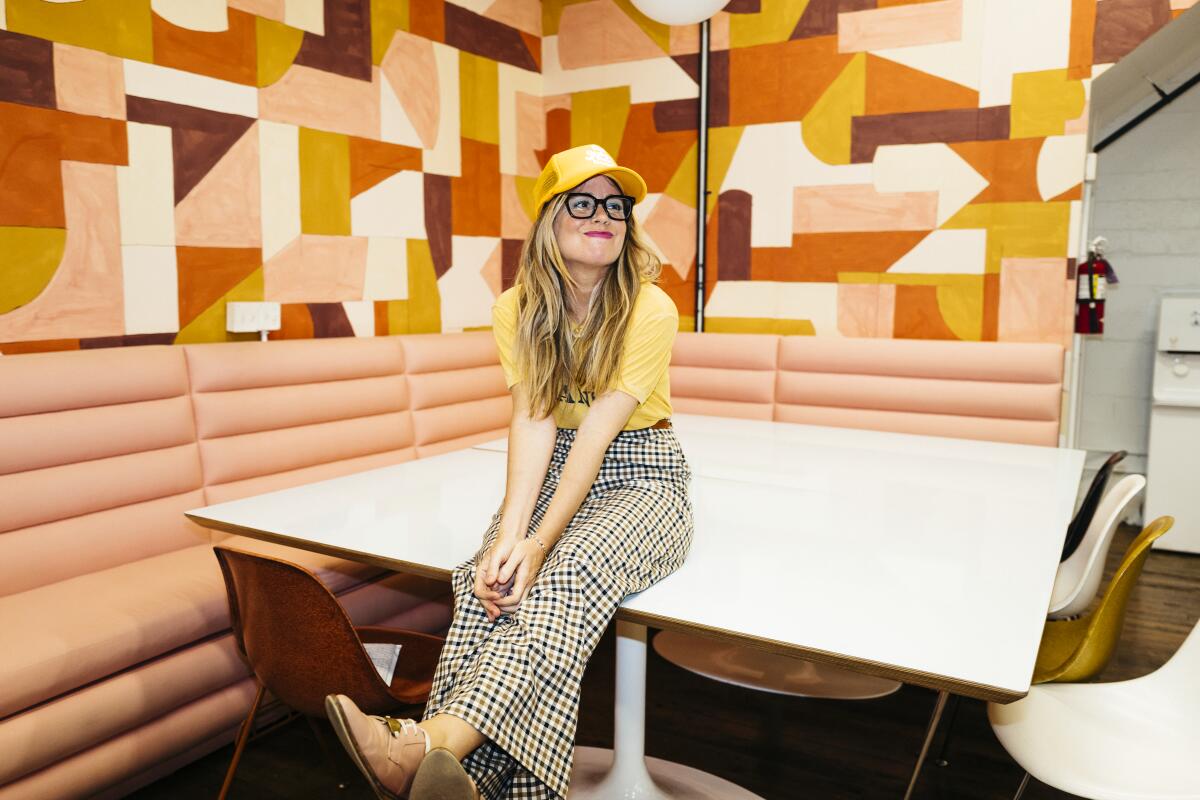
At Ban.do, the anxiety that Gotch had grappled with her whole life was an asset, something that, as she details in her book, propelled her to “double and triple check every product and every form and every label and also to question every decision.”
The roots of her philosophy about creating products with optimistic messaging were taking hold. “After suffering with depression for so long, I found myself seeking out things that brought me joy,” she writes of her brand’s packaging and presentation. “I craved bright colors and designs that conveyed optimism. ... What seemed outlandish to some people brought Jamie and me so much happiness, and it turned out to do the same for others.”
The brand was picked up by Anthropologie, and awareness was amplified. Underneath the optics of success, as Gotch explains in “Upside,” she was up against financial struggles, founder tension and marital strife. At one point, the house she owned with her husband was foreclosed. “You see these beautiful photo shoots and girls wearing Ban.do, and meanwhile, things are falling apart and not that great,” Cho says. “Knowing what was going on in her personal life and how broke she was and then seeing her be there for her team and employees and rallying to make it all work was a turning point in how I viewed her, not only as a peer but as someone I look up to.”
In 2012, the founders sold Ban.do to Lifeguard Press and Gotch stayed on as the creative director. Ban.do expanded into categories including iPhone cases and planners — all still guided by Gotch’s instincts for color and quirk. As Gotch’s devotion to the new chapter of her business deepened, her marriage disintegrated. Her Snapchat and Instagram feeds, where she had slowly begun to “pivot away from just pretty pictures and food,” she says, became open journals hinting at her relationship struggles.
She also put on what she describes as comedy shows and openly discussed the challenges she faced as a seemingly successful woman at a cheery brand. Something shifted when she posted about a separation from her husband, which ultimately led to divorce. “I would get a little ping when I was writing something and about to publish,” Gotch says. Those posts had the highest engagement and buoyed her. “When you get those feelings outside [of yourself], you understand them better.”
Before social-media algorithms favored “getting real” posts, Gotch created an authentic foundation from which she reaped as much as she sowed. “She’s exactly who she is online,” says friend Kelly Oxford, a writer-director who met Gotch on Instagram and “wanted more of her in my life.”
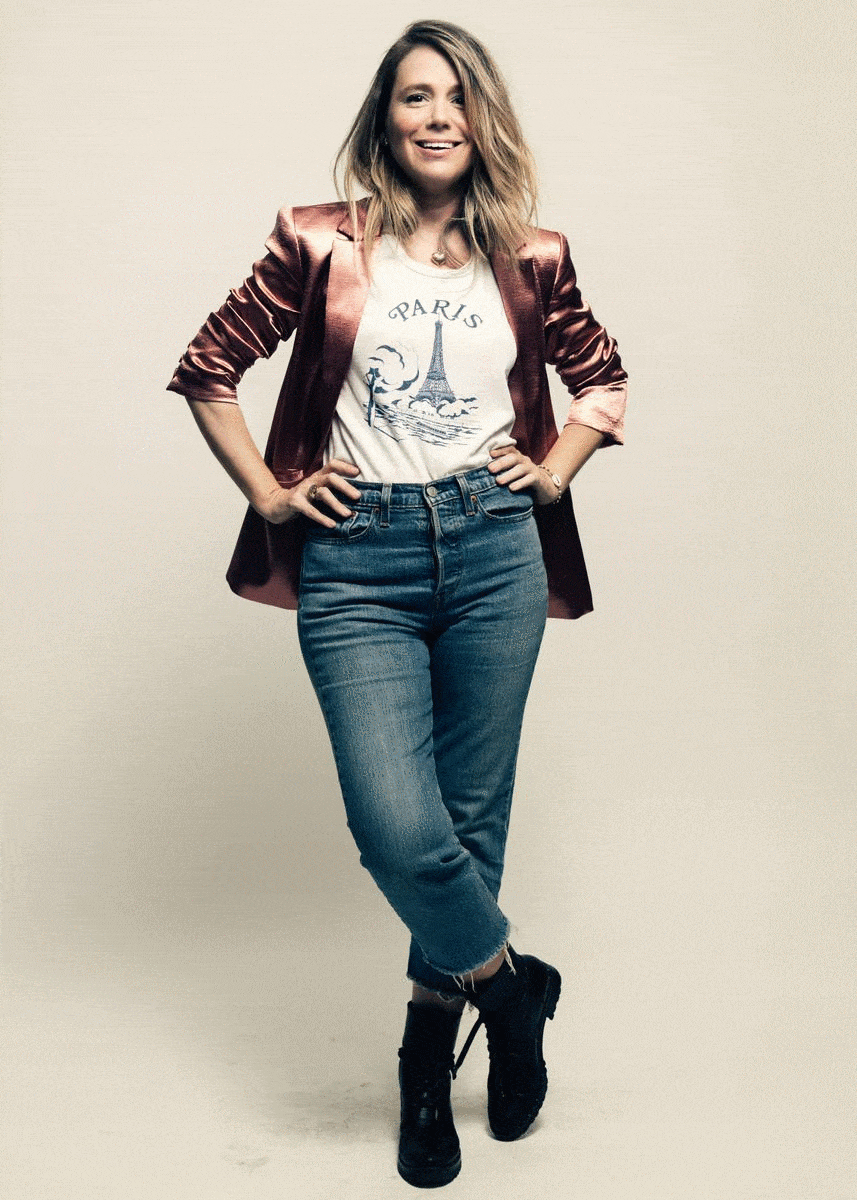
The relationship Gotch has with 245,000 followers on Instagram has lifted her and held her accountable. “There are times when, maybe, I don’t want to document something, but I’m like, I really should because it feels like an unofficial commitment I made,” she says of the audience that has followed her through divorce, medication, single life and book writing. “If I need to feel responsible to this group who has supported me wholeheartedly for so long, I should do it.”
Gotch thinks one of the reasons she resonates with people is her “lightheartedness in my approach.” Her followers and friends agree. “I think I recognized it as something I needed,” says Jenna Gagnier, a 21-year-old burgeoning clothing designer from Rochester, N.Y. “She talks about mental health in a way that doesn’t demean it but shows it can be funny at times and is also a really serious thing. It’s nice to see someone who’s talking about it and is also a successful person.”
“She loves to talk to people, and you feel safe with her,” says Ashley Streicher, a celebrity hairstylist and Striiike beauty studio co-founder.
Busy Philipps, who met Gotch at a time when they were both undergoing professional and marital crises, calls Gotch “soothing.” “She’s someone that shows up for her friends and the people that work for her,” Philipps says. “I’ve been with Jen where women will freak out when they see her. And then they’re like, ‘Oh, and you’re Busy Philipps.’ They’re not that impressed.”
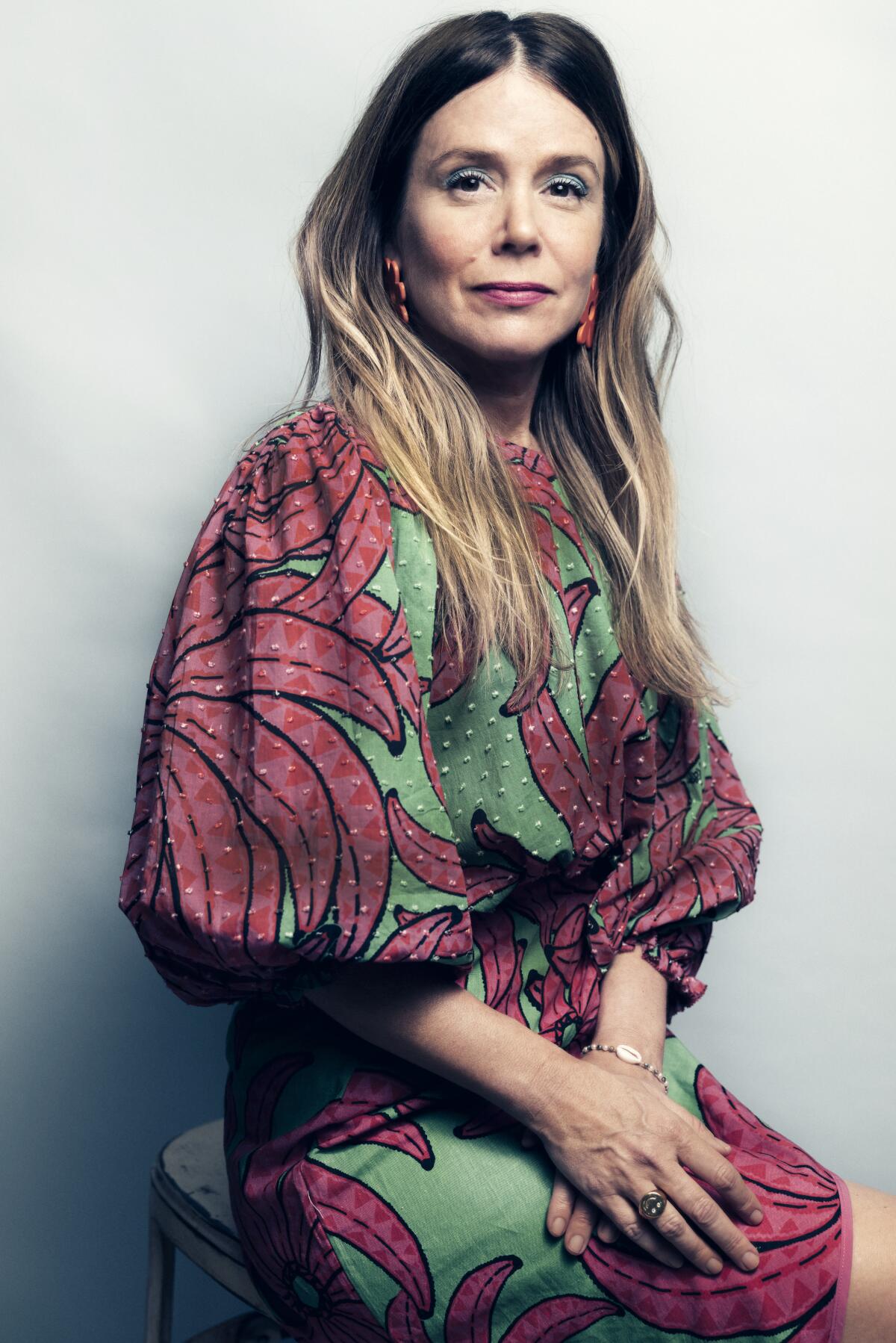
Although the process of writing the book — much of which was completed at Gotch’s Joshua Tree home — took her out of most day-to-day operations at Ban.do, she continues to occupy a role at the company in which she functions as a forecaster of sorts. “What we realized is that there’s an ability for me to be this North Star for Ban.do and run a couple years ahead and not worry that Ban.do isn’t caught up all the time,” she says.
The brand’s identity has evolved with Gotch’s insights about candor. At the end of 2017, she had an idea for two nameplate necklaces, “Anxiety” and “Depression.” Wearing the jewelry would help normalize conversations about the conditions, Gotch reasoned. It was a natural extension of what she’d been doing online. Ban.do created and sold the necklaces, with 100% of net proceeds benefiting a mental-health awareness nonprofit. The jewelry sold out immediately, and a conversation started in no small part thanks to Gotch’s high-profile circle. (Philipps wore one of the necklaces on the cover of Health magazine that year.) The discourse also included criticism. People questioned the project, saying it looked like the commodification of mental illness. Gotch took their thoughts seriously. Ban.do worked to clarify the intent behind the $48 necklaces, which continue to be bestsellers.
The insight from the necklaces has gently shaped the future of Ban.do’s product line. In 2018, the company changed its tagline from “We’re serious about fun” to “We exist to help you be your best.” What that translates into is Wellness Workbooks, crystal sets and tumblers with encouraging messages about drinking more water.
“Really digging into mental illness is not something that we’re doing as a brand. That’s more my thing. But how can we be a good point of entry to all sorts of professional, emotional, mental and physical wellness?” Gotch says. “We’ve always been after helping people feel better in general. So a lot of what we were doing was using language or color to evoke joy — understanding which color does what. We just hadn’t formalized it. Now we’re starting from a place of intention.”
Have things really brought her joy? “100%,” she says. “They still do. I’ll get giddy over some ridiculous thing at the Rose Bowl Flea Market. I think sometimes we’re steered in another direction. You’re not supposed to experience that anymore. You’re a grown-up. You’re like, ‘I’m serious now and I shouldn’t get goofy over a toy’ or whatever, and I’ve just, like, never had that shift.”
Asked how she identifies now — Is she a creative? A guru? — Gotch doesn’t have a succinct answer. “I think I’m a lot of things,” she says. “I’m an author, a founder, a chief creative officer, Instagram influencer — which I don’t love, but I understand that I influence people. [And] a mental health advocate. I think of myself as someone who just wants to beam light out.”
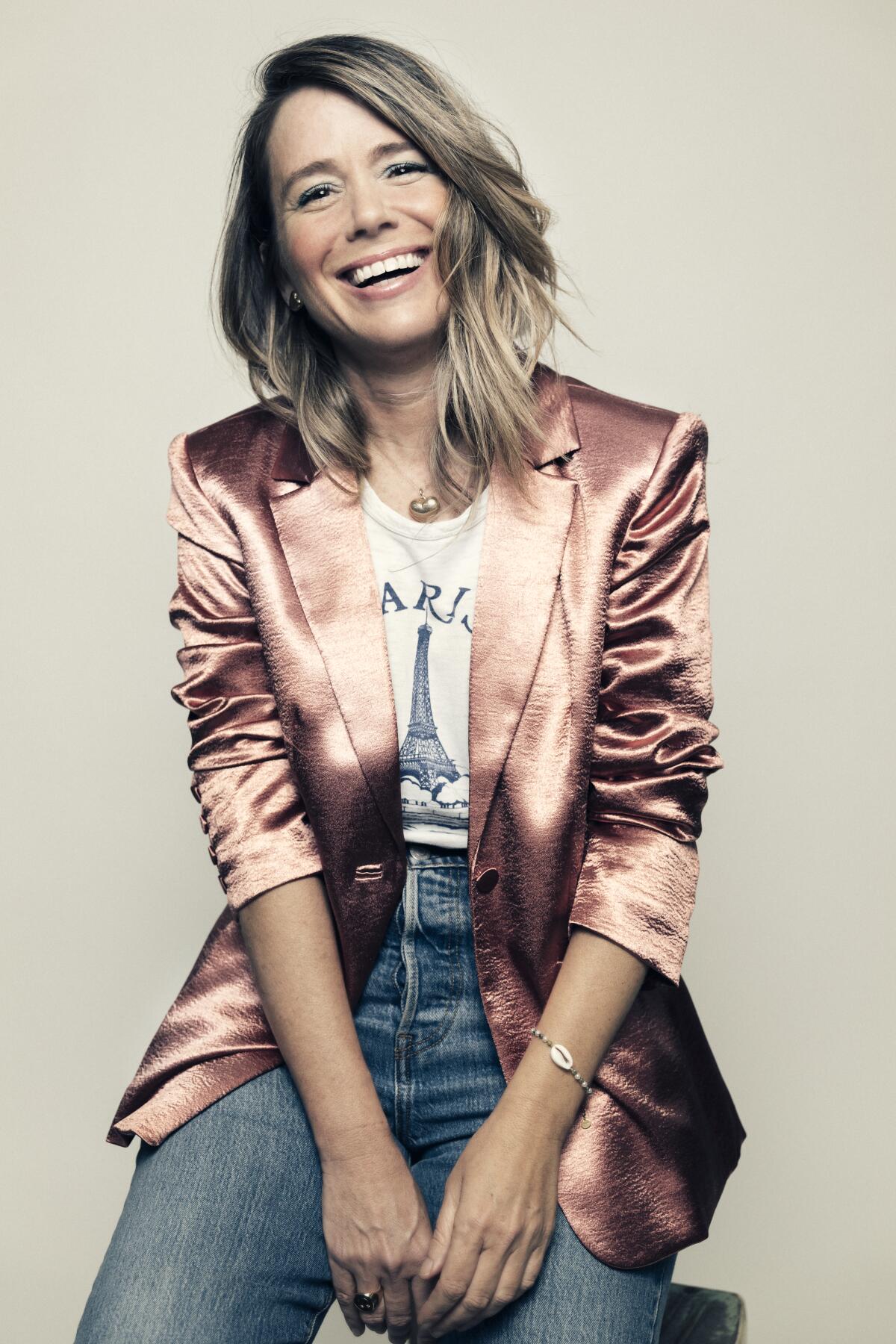
Sign up for The Wild
We’ll help you find the best places to hike, bike and run, as well as the perfect silent spots for meditation and yoga.
You may occasionally receive promotional content from the Los Angeles Times.